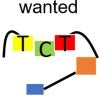
Rice strategy refines genetic base editors
A new strategy by Rice University scientists seeks to avoid gene-editing errors by fine-tuning specific CRISPR-base editing parameters in advance.

Rice strategy refines genetic base editors
A new strategy by Rice University scientists seeks to avoid gene-editing errors by fine-tuning specific CRISPR-base editing parameters in advance.
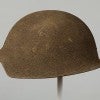
Rice tapped to develop 3D-printed ‘smart helmets’ for the military
Rice University researchers have embarked upon a project to build the first printable “smart helmet” with funding from the Department of Defense.

Nicolaou wins Robert Koch Gold Medal
K.C. Nicolaou, the Harry C. and Olga K. Wiess Professor of Chemistry, has been awarded the Robert Koch Gold Medal for his life’s work in biomedical science.
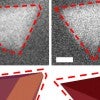
This pyramid scheme could be helpful
Rice chemists uncover the mechanism behind controlled growth of gold tetrahedron nanoparticles using liquid cell transmission electron microscopy.
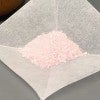
Manganese makes its mark in drug synthesis
Rice University chemists find manganese far superior to silver and cerium as a way to make building blocks for drug design and manufacture.
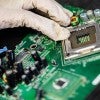
Urban mining for metals flashes electronic trash into treasure
Flash Joule heating recovers valuable and toxic metals from electronic waste. The process allows for “urban mining” of resources that could be a win for the environment as well as for manufacturers.
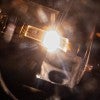
Corps of Engineers funds bid to ‘flash’ waste into useful materials
A $5.2 million U.S. Army Corps of Engineers grant will expand Rice efforts to recycle waste into valuable products through flash Joule heating.

American Chemical Society honors Gustavo Scuseria
Rice University’s Gustavo Scuseria wins the American Chemical Society Award in Theoretical Chemistry.
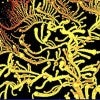
NSF extends Physics of Living Systems network at Rice
The NSF awards nearly $3 million to the Center for Theoretical Biological Physics to continue its leadership role in the Physics of Living Systems graduate research network.
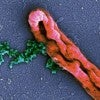
For some peptides, killing bacteria an inside job
Rice scientists study the dynamics of the immune system’s antimicrobial peptides, which attack and eliminate harmful bacteria. They find peptides that invade bacteria and do their damage from the inside are underrated.
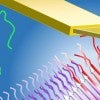
Docking peptides, slow to lock, open possible path to treat Alzheimer’s
Researchers have identified a possible “Achilles’ heel” in the frustration of amyloid beta peptides as they dock to the fibrils that form plaques in patients with Alzheimer’s disease.
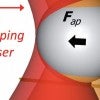
Tweezer grant pleases Rice researchers
Rice researchers have won an NSF grant to acquire a sophisticated optical tweezer microscope to manipulate, measure and monitor micron-scale particles.
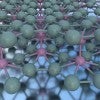
Scientists make bilayer borophene for the first time. The versatile 2D material shows promise for quantum electronics, energy storage and sensors.

CPRIT grant establishes Genetic Design and Engineering Center
Rice faculty members led by bioengineer Gang Bao have been awarded a $4 million CPRIT grant to establish the Genetic Design and Engineering Center.
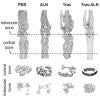
Rice, Baylor win defense grant to advance metastasis study
Rice University chemist Han Xiao and biologist Xiang Zhang at Baylor College of Medicine have won a $2.3 million Department of Defense grant to expand their efforts to halt bone cancer metastasis.